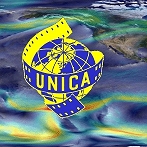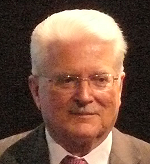
 UNICA 2013
UNICA 2013
President's Address
2012-2013 Address by Georges Fondeur
Ladies and gentlemen, dear friends,
It is almost exactly a year since we met in Ruse (Bulgaria), with
our friend Vladimir Iliev. We learned there that great things can be
created without significant resources. What remains is the memory of
a Congress, which was well planned but also pleasant and very
successful. We all had a really good time in Ruse. Once again we
heartily thank Vladimir Iliev and his team.
As in previous years the committee cannot complain of a lack of
work. Quite the opposite. Starting in Ruse, then at the
meeting in Autumn 2012 (hosted by our friends Arie and Jan) and
again at the Spring meeting (arranged by Zuzana Skoludova, who will
host UNICA 2014) we were intensely busy with several topics, which
all relate to how we can give this old lady, UNICA, a new impetus
for her next 75 years.
UNICA Festival Changes: Young Professionals
First it was agreed in Heerlen that we should make an opening in our
competition rules, albeit a tentative one, towards young
professionals, provided they are under 30 years old and have not yet
got a firm footing in the movie or television business.
Naturally they must also be connected with their national
organization either as a club-member or individual member.
Now in Fieberbrunn it has been shown that this decision was correct.
There were no fewer than 17 films of this type in the current
festival. This emphasizes that there is in fact a place at UNICA for
young authors who create short films under professional conditions
and with public and / or private funding. The creation of such a
category is no doubt a benefit in quality and marketing for our
festival, thanks to the fine training of such authors and to
increased media interest. It is, furthermore, an opportunity for
national federations, who can now include entries from young
"freelance" filmmakers in their official programs, without, however,
neglecting the "pure amateurs" or depriving them of their chances
for medals .
National Screening Times
We have also retained new screening times for 2013, confirming our
finding that the rules introduced in 2011 were relatively complex to
apply, and in some cases, such as for Germany, Poland and France
could even cause problems. Therefore by a large majority, the
committee decided to introduce a uniform one hour screening time for
each country, inclusive of two-minute breaks between films. For 2013
we retained a special arrangement for The Netherlands, Belgium and
Argentina, because under the old rules those three countries had
earned more than 60 minutes and a reduction to 60 minutes would have
been unjust. From 2014 onwards, all national programs are the same.
UNICA Reform
Furthermore, we investigated in great detail Art Hovanessian’s
reform paper, which provided for major changes in terms of the
structure, strategic direction, organization and activities of
UNICA. I will not go into these at this point, since the reform
paper was sent to all national organizations in three languages,
together with a questionnaire and an associated commentary. Due to
the rather belated delivery of these documents, documents which
would undoubtedly have a significant impact on the future
organization of UNICA, it is premature to engage with it today.
It may, in fact, still be a while before all national organizations
have studied these documents in detail in their own bodies, and
returned the questionnaire to the General Secretariat. To avoid
additional delays before the committee can deal with the replies of
federation officers, and also to avoid any suggestion of bias, we
are passing replies for consideration in the first instance to a
fresh person, someone knowledgeable and very experienced. So for the
moment, the opinions expressed in the questionnaire will be
analysed, and an attempt will be made to prepare a synthesis of the
most important guiding themes for a future, such that we will get a
gradual and sensible realignment of UNICA.
The person whose name immediately arose was, Kees Tervoort, the
President of NOVA, also familiar as President of the 2012 Jury in
Ruse and a candidate for the Committee. For some time now he has
been entrusted by the Committee as a special advisor with the
mission of preparing a reform paper for the coming years, based on
the replies to the questionnaire and of course the National
organizations’ own suggestions.
In this regard I must thank Art Hovanessian for his ideas, as the
basis of which he intends that UNICA reposition itself with new
ideas and proposals. Primarily this would be by opening up to the
world, using new ways of strategic alignment, significantly improved
marketing and communication, in order to become more attractive and
visible for young people and professional filmmakers as well as
sponsors and public authorities. Not least, however, his ideas would
require that the statutes and regulations regarding participation in
our annual festival would have to be radically changed and that
larger sources of funding need to be developed, as well as requiring
some sacrifice on the part of national organizations. In some cases
the committee responded positively to suggestions and proposals,
albeit with due caution and consideration.
I am firmly of the opinion that all of us in this hall are aware
that a paradigm shift (type of rethinking) must be undertaken in the
longer term, simply to avoid the risk of dwindling membership, dying
clubs or even like some associations eventually reaching the point
where our very existence is endangered.
However, the great majority of the Committee cannot believe that
everything that has been recognized as good and right yesterday, is
wrong and disastrous from today and into tomorrow. On the contrary,
UNICA lives - as we see here once more in Fieberbrunn, where we have
again witnessed excellent film programs from many countries around
the world.
Other Committee Concerns: Korea
The Committee cannot accept the charge, that it was primarily, or
in any way responsible for the mishap in Korea, as was reportedly
the opinion of a few people. It should said here and now that we
feel sorry for the film friends who had already joined a tour group
to go, before or after the UNICA, on a discovery trip to China and
had already paid in part for that. We are also sorry for those who
had already booked their flight and hotel in Korea and are in a
difficult position. However, it should be stressed here that these
people were taking a significant financial risk, because at that
time there was not even a registration form on the official website
of the organizers.
Committee
A committee like ours, which sees itself as the executive organ of
the umbrella organization of all members’ national federations, can
only function well, when a trusting relationship is maintained
between all its officers. Otherwise, a lot of precious time and
energy is wasted resolving internal friction or even disagreement.
It is not important that we always agree on everything, but it is
important that if a decision is taken, it is supported by all
committee members. This is an elementary rule in a democratic
organization and a prerequisite for a practical, open, relevant and
promising process within the committee. All the more so because our
Rules of Procedure, Article 4.7, state that a majority decision is
binding on all members.
Summing Up and Thanks
UNICA has in its long and turbulent history faced many a storm and
gone through troubled waters, which threatened its existence, and
yet she has survived the rocks and shoals to circumnavigate all that
without major damage. I am of the firm belief that it will remain so
in the future. In fact, and in many places the UNICA is now in a
better position than ever before, as is not least reflected in the
fact that we have many candidates who are willing to organize the
UNICA Congress for the next five or more years.
Three years tenure is long and short at the same time. For the
elected committee there remain two full years to tackle some
essential reforms, and to do so in discussion with and in full
agreement with the affiliated associations. I expect that in
Piestany in Slovakia, it will be necessary to have a general
discussion of whatever important innovations are deemed necessary
and recognized as important. We hope to prepare for this in the
coming year with objectivity and with the necessary realism. For my
part, I am proud to continue to be part of this team in all its
components and I am confident that in the medium term we will bring
the work we have begun to a satisfactory end.
However, I do not want to close without directly expressing my
gratitude to my colleagues of the Committee, who for four years now,
have managed with me the fate of UNICA and worked unselfishly for
the good.
My special thanks go to our Secretary General, Jan Essing, as well
as our Treasurer, Thomas Kräuchi, both in addition to their already
time consuming tasks, worked tirelessly and steadfastly to locate a
full-fledged replacement for Korea. They were actively supported in
this campaign by Wolfgang Freier our “travelling emissary”. His role
and his personal commitment are often insufficiently appreciated,
and I hope that this recognition will change that.
Last but not least, I am, we are all, indebted in the highest degree
to Alois Urbanek. After unsuccessful negotiations with many other
associations, he never for a moment hesitated, and has brought the
anniversary edition of UNICA to Austria. Dear Alois, you, the
Central Committee of VÖFA and the team from Fieberbrunn have truly
got us out of a jam. The past few days have shown that you have,
despite all the time and other constraints, given the 75th UNICA a
heart and soul, and what’s more a gleaming polish. Thank you so very
much.
- Georges Fondeur